Strengthen Memory Retention for Your Aesthetics Good Faith Exam Performance
Memory retention plays a crucial role in achieving excellence in aesthetics exams. Strong memory allows students to recall important techniques, principles, and procedures during practical and theoretical assessments. Enhancing memory does not require complex methods or overwhelming routines. With focused strategies and consistent practice, students can significantly improve their retention, boost confidence, and perform effectively. Simple habits, structured study methods, and targeted exercises can strengthen the brain’s ability to store and recall information efficiently. Applying these strategies ensures learning becomes long-lasting and practical application becomes smoother.
Create a Structured Study Routine
A well-organized good faith exam for aesthetics study plan enhances memory by reducing cognitive overload. Breaking study sessions into smaller, manageable chunks improves focus and retention.
- Divide study material into sections for easier recall.
- Schedule regular review sessions to reinforce concepts.
- Use time blocks for theory, practical skills, and revision.
- Avoid cramming; instead, practice distributed learning for long-term memory.
Structured routines provide consistency, helping the brain retain information effectively.
Use Visual Aids and Mind Mapping
Visual learning supports memory retention by connecting concepts with images and diagrams.
- Create diagrams, flowcharts, and sketches of aesthetic procedures.
- Use color coding to highlight important points.
- Develop mind maps linking related concepts for easy recall.
- Visualize procedures step by step to strengthen procedural memory.
Visual aids simplify complex information, making it easier to remember for exams.

Practice Active Recall
Active recall is one of the most effective techniques to strengthen memory. Instead of passively reading, actively test your knowledge.
- Quiz yourself on key concepts and techniques.
- Use flashcards for quick memory reinforcement.
- Teach concepts to peers to enhance understanding.
- Summarize information in your own words to ensure comprehension.
Active recall encourages the brain to retrieve information, enhancing long-term memory retention.
Apply Repetition and Spaced Learning
Repetition is essential for consolidating memory. Spaced learning ensures that information is reinforced at optimal intervals.
- Review notes regularly instead of once before exams.
- Schedule practice sessions over days or weeks.
- Repeat practical procedures to build muscle memory.
- Reinforce key terms and concepts periodically for stronger recall.
Consistent repetition strengthens neural connections, improving both theoretical and practical performance.
Maintain a Healthy Lifestyle
A healthy mind supports strong memory retention. Physical and mental well-being contributes significantly to learning efficiency.
- Ensure sufficient sleep to aid memory consolidation.
- Eat a balanced diet rich in brain-boosting nutrients.
- Practice mindfulness or meditation to improve focus.
- Stay hydrated and includes light exercise to enhance cognitive function.
A balanced lifestyle provides the energy and mental clarity needed for effective studying and exam readiness. Memory retention is a vital component of success in aesthetics exams. By implementing structured routines, visual aids, active recall, repetition, and healthy lifestyle habits, students can significantly enhance their ability to remember and apply knowledge. These strategies promote confidence, efficiency, and mastery over both theoretical concepts and practical skills. Consistent effort, combined with focused techniques, ensures that information is not just memorized but deeply understood, paving the way for optimal exam performance.
Read More Strengthen Memory Retention for Your Aesthetics Good Faith Exam Performance